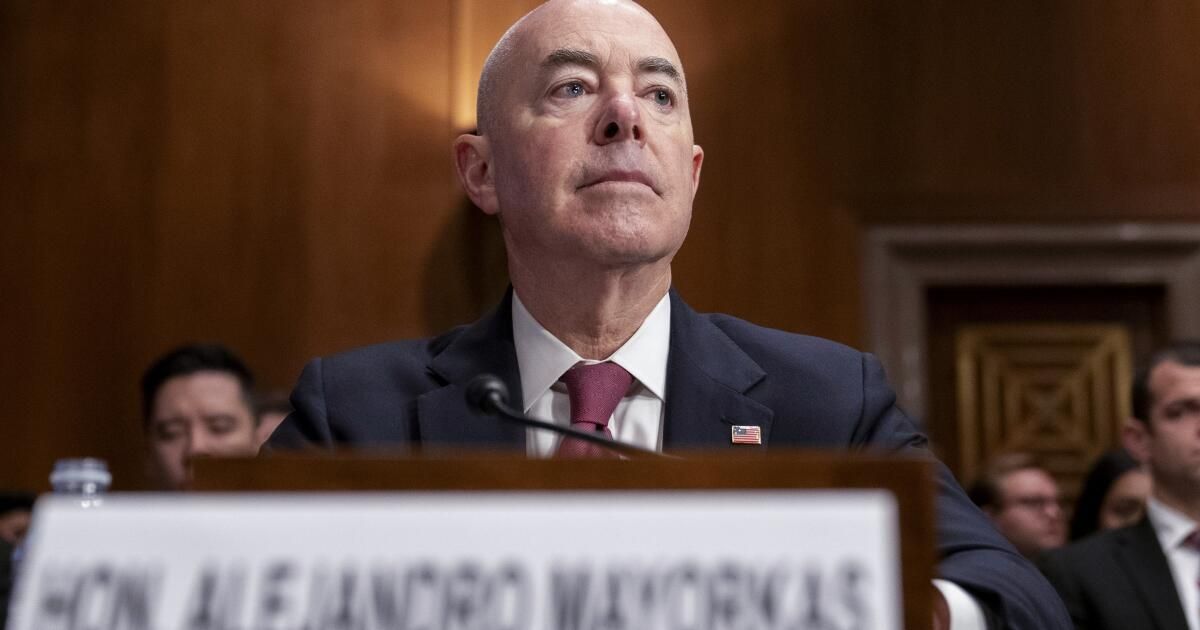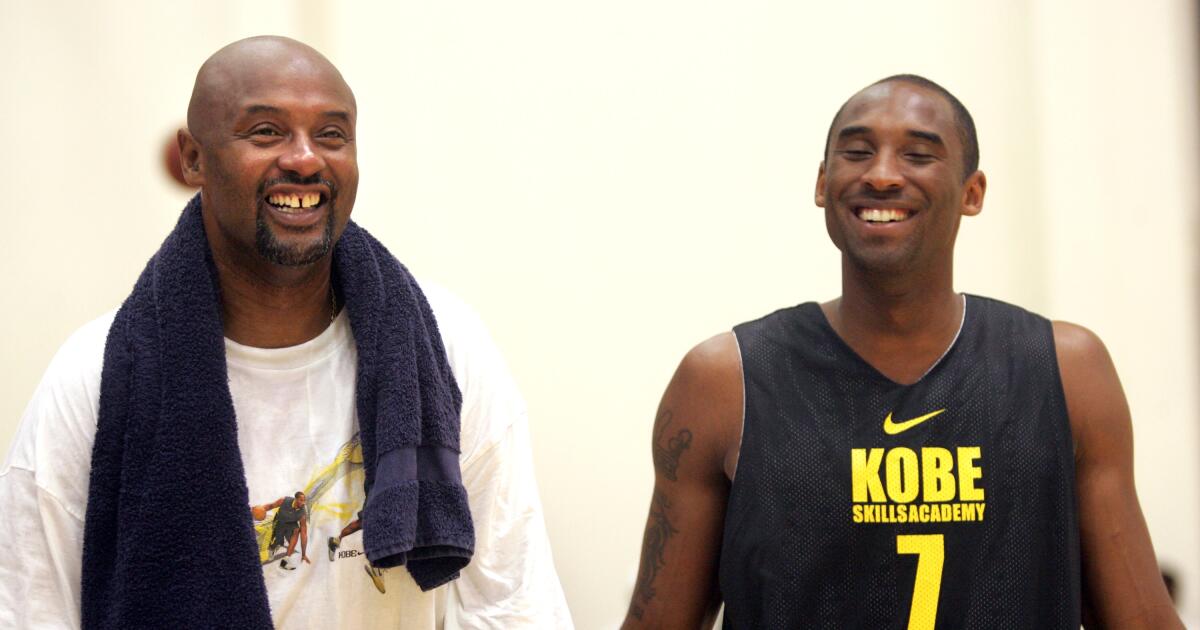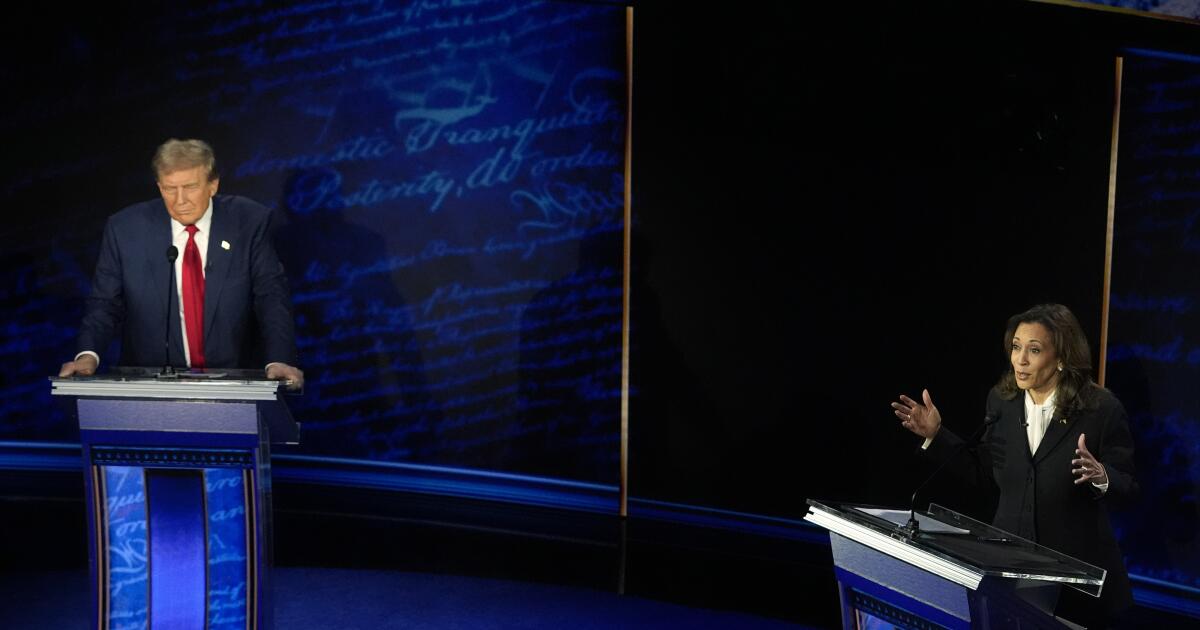This is not the kind of story Alejandro Mayorkas wanted to make.
The son of immigrants who fled Cuba and settled in Beverly Hills as a child, Mayorkas was chosen in 2021 by President Biden to become the first Latino head of the country's Department of Homeland Security.
Decades earlier he earned the reputation of being the youngest federal prosecutor in the country in 1998, heading the Los Angeles-based Central District of California at the age of 38.
In recent months, however, Mayorkas, 64, has found himself in a much less flattering historical spotlight: the goal of becoming the first American Cabinet official to be impeached in nearly 150 years.
“I knew I was entering an extraordinarily polarizing environment, an environment where norms were compromised, where civility was not always respected,” he said of his thinking when he became secretary. “I did not assume this. It doesn't worry me though.
House Republicans, who see chaos at the border as a way to regain control of the White House and Senate, say Mayorkas's failure to prevent record migrant arrivals meets the constitutional requirements for a political trial for “serious crimes and misdemeanors.”
Democrats call the impeachment effort a massive, politically motivated overreach, and characterize Mayorkas as a compromised government servant being used as a pawn in the 2024 presidential race.
To the surprise of many, the embattled secretary narrowly escaped impeachment by the House on Tuesday when three Republican lawmakers, including one from California, broke ranks with their party and joined all Democrats in voting against him.
But House Republican leaders have vowed to try again, perhaps as soon as next week, although the Democratic-controlled Senate is certain to neither convict him nor remove him from office.
In his first extensive interview since the vote, Mayorkas told the Los Angeles Times on Thursday that he did not watch the impeachment process. Instead, he was at a meeting in the San Francisco Bay Area discussing the agency's prioritization of artificial intelligence. He broke away to make a call and was informed that the vote had failed.
Mayorkas, who insists he will not resign even if charged, says he inherited a failed and outdated immigration system that cannot adequately respond to what has become a global migration crisis caused by violence, poverty, authoritarian regimes and climate disasters.
He called the impeachment proceedings baseless, the allegations false, and blamed Congress for not allocating enough funds to address the problem.
After dedicating his life and career to public service and law enforcement, Mayorkas said the threat of impeachment, one of the rarest and most embarrassing rebukes a government official can face, is disappointing but has not affected their commitment.
Respect for the law and service to democracy are themes deeply rooted in Mayorkas' upbringing.
As a child in Los Angeles, Mayorkas remembers his mother encouraging him to approach uniformed police officers, extend his hand and thank them. After escaping Fidel Castro's regime in Cuba, the American police were, for her, a symbol of security and the rule of law.
Mayorkas was born in Havana. His Cuban Jewish father owned a steel wool factory; His mother, a Romanian Jew, narrowly survived the Holocaust when her family boarded one of the last ships bound for Cuba.
In Beverly Hills, where his parents were drawn to the educational system, the family lived in a two-bedroom apartment before moving to a modest house, where Mayorkas shared a room with his two younger brothers. They attended a local synagogue twice a year for the High Holidays and frequented El Colmao, a Cuban restaurant in Pico Unión.
Mayorkas attended Beverly Hills High School, UC Berkeley and Loyola Law School.
As a promising young federal prosecutor in Los Angeles, Mayorkas sought the death penalty against members of the Mexican Mafia, brought racketeering charges against a Los Angeles street gang, and prosecuted Hollywood madam Heidi Fleiss for tax fraud and money laundering. money.
The time he spent in the courtroom, where he said defense attorneys fired heated verbal missiles at him, prepared him for what was to come.
“When I was in the courtroom and the arrows were flying, what you stand for is the truth,” he said. “Having to fight for that truth to prevail is, I thought, what a privilege. And the arrows? Let the arrows come. We will divert them and destroy them.”
David Lash, then CEO of Bet Tzedek Legal Services, a nonprofit law firm in Los Angeles, remembers consulting with Mayorkas on a series of fraud cases targeting seniors. “Ali,” as Mayorkas is known to his friends, was instrumental in the success of those cases, Lash said.
Lash and Mayorkas, who lived five blocks from each other, had children about the same age. They became close friends and over the years would get together for backyard barbecues.
Mayorkas helped recruit Lash to the pro bono program at O'Melveny, the Los Angeles law firm Mayorkas joined after President Clinton left office in 2001.
Walking to lunch could take 20 minutes, Lash recalled, because Mayorkas seemed to know every third person on the street and would stop to shake their hands and ask how their families were doing.
“I think that's because he is an immigrant himself and works in the public interest,” Lash said. “It's so important to him that he's imbued with this respect for people who are just regular people who work for a living.”
President Obama appointed Mayorkas to lead U.S. Citizenship and Immigration Services in 2009. There he led the implementation of Deferred Action for Childhood Arrivals, or DACA, the program that offered work permits and deportation protections to hundreds of thousands of immigrants brought to the country as children.
Four years later, Mayorkas was confirmed by the Senate as deputy secretary of DHS. He led the agency's response to the Ebola and Zika virus epidemics, built the agency's cybersecurity capabilities, and targeted drug cartels.
His tenure was not without controversy. TO 2015 DHS Inspector General Report accused Mayorkas of creating “an appearance of favoritism and special access” for politically connected companies under a visa program that provided a path to citizenship for wealthy foreign investors.
Mayorkas returned to private practice during the Trump administration as a partner at WilmerHale. But his friends seemed dissatisfied.
“He felt there was unfinished business there and he could get the job done,” said Jim Pasco, executive director of the national Fraternal Order of Police. He and Mayorkas have been friends since Mayorkas led the citizen services agency.
Pasco said Mayorkas has a true reverence and affinity for law enforcement.
“His whole view of the world, his whole approach to life was really imprinted on him from his childhood and his adulthood,” Pasco said. “His family, particularly his mother and father, were very, very patriotic and they raised him to be patriotic and appreciate the things that the government did for them and the things that [it] protects them from.”
Mayorkas returned to the Department of Homeland Security with the Biden administration, faced with the challenge of undoing many of Trump's policies, including travel bans on people from certain Muslim-majority countries, and with the consequences of others, such as the separation of migrant children from their families. parents.
Mayorkas was quickly overwhelmed by the unprecedented arrival of migrants to the southern border, not only from Central America but now also, in greater numbers, from places like China, India and Afghanistan. Republicans quickly put him and his impeachment in their crosshairs after taking control of the House in 2023.
The rhetoric against Mayorkas has turned ugly at times. The morning of the impeachment vote, House Homeland Security Committee Chairman Mark Green (R-Tenn.) behind closed doors called Mayorkas a “ballless reptile” because he refused to resign. according to Politico.
The attacks against Mayorkas have even led some conservatives to come to his defense.
The Pasco organization, the Fraternal Order of Police, sent a letter to Congress just before the House vote on Tuesday, praising Mayorkas and the partnership between DHS and local law enforcement to combat the fentanyl epidemic and violent crime. The FOP, the country's largest police union, endorsed Trump in 2016 and 2020.
Trump's impeachment lawyer Alan Dershowitz, urged Republicans should not “apply double standards” in removing Mayorkas.
in a letter to colleagues on tuesday In the morning, Rep. Tom McClintock (R-Elk Grove) said Mayorkas' policies have harmed the country, but that negligence is not an impeachable crime. Members of the Homeland Security Committee, he said, “stretch and distort the Constitution to hold the administration accountable for stretching and distorting the law.”
three exes Homeland Security Secretariesfrom Democratic and Republican administrations, said impeachment endangered national security and undermined the department's mission, including counterterrorism efforts.
And left-wing groups, some of which have been strident critics of Mayorkas' policies, extended olive branches in support of the secretary, one of the highest-ranking Latinos in the government.
A coalition of 18 Latino-led civil rights and advocacy groups, including the Los Angeles Coalition for Humane Immigrant Rights, wrote to House Speaker Mike Johnson (R-La.) on Tuesday, calling the impeachment effort as a sham.
“While not all of its decisions have been met with unanimous approval, including from the signatories below and other voices within our community, we strongly urge Congress to redirect its efforts to work in a bipartisan manner toward humane and effective immigration reform that helps Let the Americans move forward. people forward”, the groups wrote.
At the same time as the House moved forward with the impeachment process against Mayorkas, the Senate released a bipartisan $118 billion foreign and border aid bill, supported by Biden and on which Mayorkas consulted.
“The irony is not lost on me,” said Sen. Alex Padilla (D-Calif.). who opposed the bill, in part because it did not include a legalization component for immigrants, including the so-called Dreamers, as previous negotiations have done. “Republicans can't have it both ways,” he said.
Still, Padilla said running Homeland Security is one of the toughest jobs in the United States, and it gets even tougher when Congress plays politics.
Republicans, he said, “can't come up with meaningful solutions, so they resort to trying to scapegoat someone through the impeachment process.”
Times staff writer Sarah D. Wire contributed to this report.












